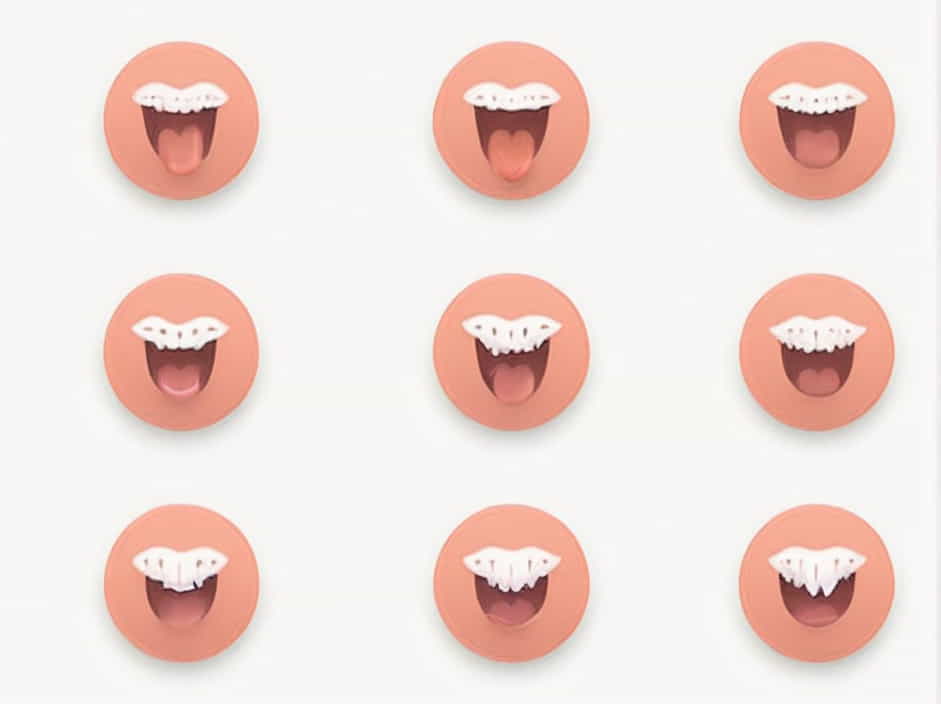The uvula is a small, fleshy extension located at the back of the soft palate. Though often overlooked, this teardrop-shaped structure plays an essential role in speech, swallowing, and preventing food from entering the nasal cavity.
In this topic, we will explore the anatomy, functions, common conditions, and treatments related to the uvula, along with tips to maintain good oral and throat health.
Anatomy of the Uvula
The uvula is part of the oral and pharyngeal structures, working alongside the soft palate, tonsils, and throat muscles.
Structure of the Uvula
The uvula consists of:
- Muscle fibers that allow movement.
- Mucous membrane for protection and moisture.
- Salivary glands that aid in lubrication.
It is suspended from the soft palate and positioned at the entrance to the oropharynx (throat region).
Location of the Uvula
- It hangs from the midline of the soft palate at the back of the mouth.
- It is visible when you open your mouth wide and say ‘ahh.’
Functions of the Uvula
Although small, the uvula serves multiple purposes in the body.
1. Assisting in Speech Production
- The uvula plays a role in forming certain sounds and phonetics in languages like Arabic, French, and Hebrew.
- It helps create uvular consonants by controlling airflow and vibrations.
2. Preventing Food from Entering the Nasal Cavity
- During swallowing, the soft palate and uvula lift to close off the nasopharynx.
- This prevents food and liquid from entering the nasal passages.
3. Aiding in Swallowing
- The uvula stimulates the gag reflex, which prevents choking by triggering a protective response.
- It also works with the soft palate muscles to guide food toward the esophagus.
4. Lubricating the Throat
- The uvula contains mucous glands that produce saliva.
- This keeps the throat moist and lubricated, preventing dryness and irritation.
5. Playing a Role in the Immune System
- The uvula is part of the oropharynx, which interacts with the body’s immune response.
- It may help detect harmful pathogens entering through the mouth.
Common Conditions Affecting the Uvula
Several health issues can cause swelling, irritation, or dysfunction of the uvula.
1. Uvulitis (Inflamed Uvula)
- Definition: Inflammation of the uvula, causing redness, swelling, and discomfort.
-
Causes:
- Bacterial or viral infections (e.g., strep throat, tonsillitis).
- Allergic reactions (e.g., pollen, food, medication).
- Dehydration or excessive alcohol consumption.
- Acid reflux (GERD).
-
Symptoms:
- Swollen, elongated uvula.
- Sore throat and difficulty swallowing.
- Feeling of something stuck in the throat.
-
Treatment:
- Hydration and rest.
- Anti-inflammatory medications.
- Antibiotics if caused by bacteria.
2. Uvula Swelling from Snoring and Sleep Apnea
- Definition: The uvula can become enlarged due to vibrations during snoring.
-
Causes:
- Obstructive sleep apnea (OSA) – A condition where airflow is blocked during sleep.
- Chronic snoring – Can lead to irritation and uvula elongation.
-
Symptoms:
- Loud snoring.
- Morning sore throat.
- Interrupted breathing during sleep.
-
Treatment:
- Continuous Positive Airway Pressure (CPAP) therapy.
- Lifestyle changes (weight loss, avoiding alcohol before bed).
- Uvulopalatopharyngoplasty (UPPP) – A surgical procedure to remove excess tissue.
3. Uvula Deviation (Misalignment of the Uvula)
- Definition: The uvula may shift to one side due to nerve damage or a stroke.
-
Causes:
- Neurological disorders (e.g., stroke, Bell’s palsy).
- Tonsillectomy or oral surgeries.
-
Symptoms:
- Asymmetrical uvula position.
- Difficulty swallowing.
- Changes in speech.
-
Treatment:
- Neurological evaluation.
- Speech therapy for voice control.
4. Bifid Uvula (Split Uvula)
- Definition: A condition where the uvula is divided into two lobes.
-
Causes:
- Genetic factors or birth defects.
- Can be associated with cleft palate conditions.
-
Symptoms:
- Minor speech difficulties.
- Risk of middle ear infections.
-
Treatment:
- Surgery if it interferes with speech.
- Regular monitoring in children.
5. Elongated Uvula
- Definition: An excessively long uvula that touches the tongue or throat, causing irritation.
-
Causes:
- Genetic predisposition.
- Chronic throat infections.
-
Symptoms:
- Gagging sensation.
- Difficulty swallowing or breathing.
-
Treatment:
- Uvulectomy (surgical removal of part of the uvula).
- Lifestyle changes to reduce inflammation.
How to Keep Your Uvula Healthy
1. Stay Hydrated
- Drink plenty of water to prevent uvula dryness and irritation.
- Avoid excessive alcohol and caffeine, which can dehydrate tissues.
2. Practice Good Oral Hygiene
- Brush your teeth twice daily to reduce bacterial infections.
- Use antiseptic mouthwash to maintain oral health.
3. Treat Acid Reflux (GERD)
- Avoid spicy, acidic foods that trigger reflux.
- Elevate your head while sleeping to prevent stomach acid from irritating the uvula.
4. Address Snoring and Sleep Apnea
- Maintain a healthy weight to reduce airway blockage.
- Use CPAP machines if diagnosed with sleep apnea.
5. Seek Medical Attention for Persistent Issues
- If you experience chronic throat pain, swelling, or speech difficulties, consult a doctor.
- Early detection can prevent serious complications.
The uvula may be a small part of the mouth, but it plays a significant role in speech, swallowing, and throat protection. Understanding its function and potential health issues can help individuals take better care of their oral and throat health.
By maintaining good hygiene, hydration, and seeking medical care when needed, you can ensure a healthy and properly functioning uvula for a lifetime.
